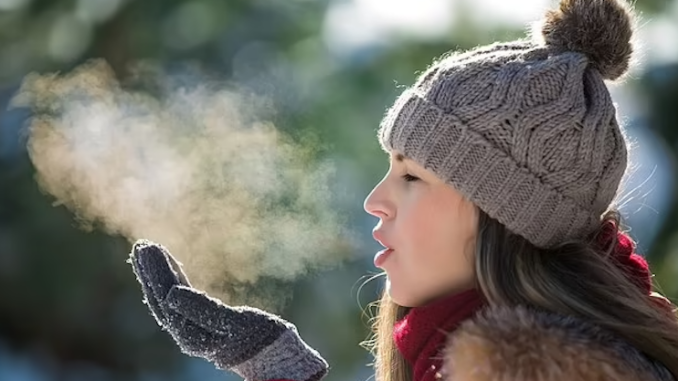
The act of breathing is now one of the major contributing factors that causes so-called ‘global boiling‘, according to a team of WEF-funded scientists.
Methane and nitrous oxide in the air we exhale makes up a whopping 0.1 per cent of the UK’s greenhouse gas emissions, scientists say.

BYPASS THE CENSORS
Sign up to get unfiltered news delivered straight to your inbox.
You can unsubscribe any time. By subscribing you agree to our Terms of Use
Latest Video
And that’s not accounting for the toxic gas we release from burps and farts, or emissions that come from our skin without us noticing.
Dailymail.co.uk reports: The new study was led by Dr Nicholas Cowan, an atmospheric physicist at the UK Centre for Ecology and Hydrology in Edinburgh.
‘Exhaled human breath can contain small, elevated concentrations of methane (CH4) and nitrous oxide (N2O), both of which contribute to global warming,’ Dr Cowan and colleagues say.
‘We would urge caution in the assumption that emissions from humans are negligible.’
As most of us remember from science classes at school, humans breathe in oxygen and breathe out carbon dioxide.
When we inhale, air enters the lungs, and oxygen from that air moves to the blood, while carbon dioxide (CO2), a waste gas, moves from the blood to the lungs and is breathed out.
With plants, it is the other way round; plants use CO2 to create oxygen as a by-product (the process known as photosynthesis).
Every person breathes out CO2 when they exhale, but in their new study, the researchers focused on methane and nitrous oxide.
These two are both powerful greenhouse gases, but because they’re breathed out in much smaller quantities, their contribution to global warming may have been overlooked.
What’s more, plants essentially soak up all the CO2 that’s emitted in human breath, so ‘CO2 contribution in human breath to climate change is essentially zero,’ Dr Cowan told MailOnline.
The same cannot be said for methane and nitrous oxide, as plants don’t use these gases in photosynthesis.
For the study, the researchers investigated emissions of methane and nitrous oxide in human breath from 104 adult volunteers from the UK population.
Participants were required to take in a deep breath and hold it for five seconds, then exhale into a sealable plastic bag.
A total of 328 breath samples were collected and every participant had details recorded such as age, sex and dietary preference.
After analysing the samples, researchers found nitrous oxide was emitted by every participant, but methane was found in the breath of only 31 per cent of participants.
Researchers say those who do not exhale methane in their breath are still likely to ‘release the gas in flatus’ – in other words, by farting.
Interestingly, people with methane in their exhaled breath were more likely to be female and above the age of 30, but researchers aren’t sure why.
Concentrations of the two gases in the overall samples let the researchers estimate the proportion of the UK’s emissions are from our breath – 0.05 per cent for methane and 0.1 per cent for nitrous oxide.
Dr Cowan stresses that each of these percentages relate specifically to these respective gases, not all of the UK’s greenhouse gas emissions as a whole.
Researchers didn’t manage to find any link between gases in the breath and diets – although meat eaters are known to fuel the climate crisis in other ways.
The experts stress that their study only looked at greenhouse gases in breath, and so it does not provide an overall estimate of a person’s emissions footprint.
According to the authors, emissions of methane and nitrous oxide are ‘generally ignored in most environmental monitoring’ as they’re considered negligible.
However, further study of human emissions of these gases – not just from our breath – could reveal more about ‘the impacts of an ageing population and shifting diets,’ the team say.
Inside the human body, methane gas is produced by microorganisms called methanogens, which colonise our digestive tract.
The methane crosses into the blood and is carried to the lungs where it can be exhaled in breath.
Meanwhile, bacteria in the gut and oral cavity turns nitrates in food and water to nitrous oxide, which also escapes in human breath.
The study has been published in the journal PLOS One.


